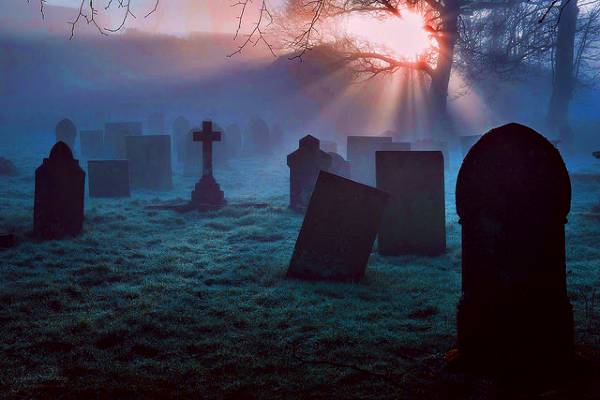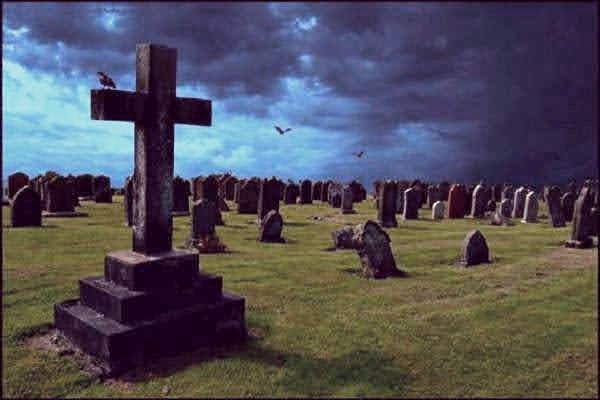What is the antidote to fear of death if our demise is inevitable? The afterlife is a concept sold by many religions. But no other religion can beat Western organized religion at selling promises and potions for fear of death. Learn to use this fear to spark our inner journey instead of a source of income for religion.
Whether you believe in heaven and hell or something else, this concept shapes our culture. Yes. There are many kinds of fear. There is a fear of failure, rejection, abandonment, and loss of relationships, but nothing tops our existential fear of death.
The insecurity of death brings up the personal crisis known as the dark night of the soul. It can be a doorway to self-development. But here is where religion turns these fears into a cash flow jackpot. How do they do it?
The Afterlife or Life After Death
What is the antidote to fear of death? Questions about death are one of the first questions we have about life. Children as young as two years old ask about what happens when we die. Many philosophers call this our existential fear. Children are open to accepting anything their parent, caregiver, or authority figure tells them.
It’s that moment we realize all things die, including us. Our existential fear of health prompts us to seek answers. It’s a critical phase. This innate fear should stimulate our spiritual quest, but here’s where religions step in the antidote to the fear of death. All you need to do is to believe what they tell you.
“I have no fear of the Hereafter. An orthodox hell could hardly be more torture than my life has been.” — Robert E. Howard
The fear of the unknown and death go hand-in-hand. If you are smart, you can find a way to capitalize on the reality of our demise. Joseph Campbell calls the fear of death the impetus for the Hero’s Journey. (1) It is that part of human nature that awakens when we grasp the reality of our eventual demise. If we face our existential fear of death, we can learn how to make our lives meaningful.
Selling Promises and Potions
The concept of awareness of living after death is a philosophy found in many religions. The promise of eternal life in some heavenly realm is common. Even those who don’t follow a religion ascribe to some afterlife beliefs. Some call it life after death, later life, or the afterlife. Most variations of this concept are mutually exclusive. That means the life-after-death benefits have certain conditions based on your religion.
Many Religions offer specific afterlife benefits as a potion to overcome our existential fear. So, what is the antidote to fear of death that they sell? The antidote is the afterlife, or life after death in a celestial paradise; some prefer a harem of virgins if that is your thing. The promise of something better than their current life helps cover the fear of death. Religion is happy to provide these answers at a price. Some find them comforting, but this comfort is fragile.
Religion has a potion to dispel fear called belief. Selling promises and potions under the guise of a mystical formal is the potion they provide. But it’s not all unicorns and rainbows.
Afterlife promises aren’t just about heaven; they also include hell. If the carrot of heaven doesn’t entice you to buy into the game, stick; the fear of eternal torture and punishment should motivate you. It’s the stick-and-carrot tactic. It’s a tactic to herd animals. You tempt them with something delicious, just out of reach, but if they don’t go for it, you smack them on the ass.
With the afterlife for sale by many religions, which is the right one? Most people who are a part of religion don’t pick their hereafter beliefs, which comes with the package of religion. There are no options. Some are born into their faith. So, children and the vulnerable rarely have a choice. Sometimes, the beliefs about life after death are integral to religious beliefs or creeds. When you live all your life believing something, you don’t question it.
In contrast, some say there is nothing after death. Death is the end. All that awaits is eternal oblivion. The belief that consciousness exists after death is not exclusive to those with religious beliefs. Our popular culture reinforces this belief system with thousands of supernatural movies and TV shows. The duality of good and evil is programmed and reprogrammed. So, even if your favorite religion doesn’t brainwash you, you’ll get a dose of this mythology in your entertainment. What is the antidote to fear that they all sell? Why it’s heaven and hell?
When does or When Did God Promise Eternal Life?
First, you need to obey whatever your religion tells you what you need to believe and do. You need to make a public declaration of your beliefs. If you do this and pay your weekly tithe, then you are entitled to afterlife benefits.
So, there is a catch. If you are a believer, you want to stay in good standing and not lose your place in heaven. If you fail to meet the standard of your belief system, you lose out. One thing you can do to protect your spot in heaven and avoid hell. One way is to put heaven on the layaway plan. You can pay indulgences. You buy your way to eternal life. Or you can do special things that please your God, like kill non-believers.
In most cases, believing in a life after death presupposes two mystical realms, Heaven and Hell. After all, you can’t have a life after death if you’ve nowhere to go. Sadly, we are all going to hell in someone else’s religion.
If you want to know when did God promise eternal life? It is always after to prove you are a follower. What happens to everyone who doesn’t believe or never heard of this imaginary friend? Believers will tell you they go to hell, which is when the religion tells its followers to proselytize and gain more followers. Of course, this makes more cash flow potential for the religion.
So, if you buy into a religion, what is the antidote to the fear of death? What is the cost of their potion? You must pay your way and work to support your religion. The afterlife merely substitutes the fear of death for the fear of hell. You must submit to all of the tenets of the belief system if you want the benefits. How successful is this scheme?
Many religions use the afterlife or life after death as a recruitment and retention tool. Still, the Abrahamic faiths surpass others in their marketing efforts and the use of fear to motivate. The sale of the afterlife is big business and has been for centuries. It is warproof and recession-proof. (2)
Depending on your beliefs, you can receive a range of rewards. Afterlife promises could be good or bad depending upon certain conditions of the plan. If you qualify as a believer, you go to heaven, but if you don’t meet the criteria, there’s a place for you.
“Eternal suffering awaits anyone who questions God’s infinite love.” ― Bill Hicks
Selling Promises and Potions Is Big Business
The three largest religions by population are Judaism, Christianity, and Islam. Together, they boast over 4 billion followers. Today, there are over 10,000 versions of these themes. They couldn’t sell life after death if it were not for the concept of hell.
With the afterlife or life after death for sale, they could leverage rewards and punishment. It is another fear-driving idea from Egyptian, Babylonian, Persian, and Assyrian ancient mystery religions. Here, we find the concepts of hell, demons, and several other things to keep fear high. Yes, we must give credit where it is due. The Abrahamic religions did not create this scheme; they adopted it and spread it over a larger geographical area.
What is the Antidote to Fear of Death in your life?
It’s all about continually triggering our fear. It doesn’t matter how intelligent you are. The more you expose yourself to this propaganda, the more susceptible you become and the more likely you are to believe other aspects of superstition. The more afraid and insecure you are, the more vulnerable you are. That makes you a lifelong paying customer. You may even leave something in your will to help ensure you make it to heaven—no way to tell.
The primary goal of these systems is to generate income. The Catholic Church is the wealthiest entity on the planet, with more material wealth than most countries. Selling promises and potions for our existential fear was a brilliant idea. It provides an antidote to the fear of death, thus becoming the best all-time cash flow generator.
How rich is the Catholic Church? It has an estimated net worth of over 400 billion dollars, including cash, real estate, precious metals, and art. The best part is that there are no customer complaints or refunds.
Knowledge is the Antidote to Fear
It is essential to know how concepts shape your worldview. You’ll learn how your beliefs about the afterlife shape your worldview. This is an important step in understanding ourselves and our culture. When we understand what shapes our worldviews, then we are in a position to change them. If we don’t identify them, our beliefs color our choices, and we don’t even realize it. Knowledge is not just power; knowledge is the antidote to fear.
— If you have afterlife beliefs, where did you get them?
— Did you choose your afterlife beliefs after doing research and reviewing the facts? Or were you indoctrinated into religious beliefs as a child or in a personal crisis?
— Are your afterlife beliefs part of a package with your religious beliefs? Or can you pick from various options?
— How much do you need to pay your religion to maintain life-after-death rewards?
— Do you hold on to these beliefs because you fear that rejecting them would place you in eternal jeopardy? Do you believe in hell?
— Do your afterlife beliefs motivate you to show love, compassion, and friendship? Does this love and mercy extend to others outside your belief system?
—Do your beliefs in life after death create barriers that prevent you from making or maintaining relationships with others who don’t hold the same opinions?
— Are your beliefs an antidote for fear? Or do you exchange the anxiety of death for losing afterlife promises?
— Has your fear of death prompted you on your inner journey apart from organized religion?
Conclusion — The Promise of Eternal Life
Think about what you believe. Why do you believe what you believe? Where did these beliefs come from? What is the antidote to fear that you choose? Is it the belief in the afterlife provided by religion or the path of spiritual exploration? Think about it. Remember, knowledge is the antidote to fear, not the belief in imaginary friends and enemies.
The concept of eternal existence is a core tenet of many religions, and these beliefs often contain the promise of eternal reward and punishment. Whether you believe in such theories, this concept shapes our popular culture. You need to be conscious of its power in your life because selling promises and potions as a counterfeit are part of mainstream culture.
If you have the choice, picking the right beliefs about what happens when we die can be hard. There are so many religious options; which one do you pick? We are all going to hell in someone else’s religion. Are you buying the antidote to the fear of death? Or is the afterlife just an easy answer to a more complicated question?
References
(1) Joseph Campbell’s Book, Historical Atlas of World Mythology.
(2) End of Life and Life After Death — Issues to be addressed.

